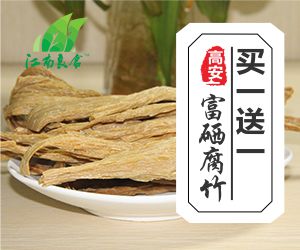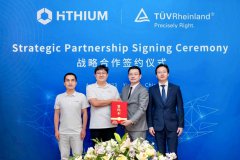- In the Phase 3 SOLSTICE study, more than twice the proportion of adult transplant recipients with refractory or resistant (R/R) CMV infection/disease achieved confirmed CMV DNA level
OSAKA, Japan & CAMBRIDGE, Mass.--(BUSINESS WIRE)--Takeda Pharmaceutical Company Limited (TSE:4502/NYSE:TAK) (“Takeda”) today announced that the U.S. Food and Drug Administration (FDA) has approved LIVTENCITY™ (maribavir) for the treatment of adults and pediatric patients (12 years of age or older and weighing at least 35 kg) with post-transplant cytomegalovirus (CMV) infection/disease that is refractory to treatment (with or without genotypic resistance) with ganciclovir, valganciclovir, cidofovir, or foscarnet.1 Overall, more than twice the proportion of adult transplant patients with refractory or resistant (R/R) CMV infection/disease achieved confirmed CMV DNA level <LLOQ* (lower limit of quantification, i.e. <137 IU/mL) at Week 8 (end of treatment phase), the study’s primary endpoint, with LIVTENCITY (56%; n=131/235), compared to those treated with conventional antiviral therapies (24%; n=28/117) (adjusted difference: 33%, 95% CI: 23–43; p<0.001).†‡§ LIVTENCITY is Takeda’s second new molecular entity to receive FDA approval in FY2021.
“Today’s announcement redefines the management of post-transplant CMV with the approval of the first and only treatment for transplant patients with CMV that is refractory with or without resistance, a significantly underserved and vulnerable patient community,” said Ramona Sequeira, President, U.S. Business Unit and Global Portfolio Commercialization, Takeda Pharmaceutical Company Limited. “People undergoing transplants have a lengthy and complex healthcare journey; with the approval of this treatment, we’re proud to offer these individuals a new oral antiviral to fight CMV infection and disease. We are grateful for the contributions of the patients and clinicians who participated in our clinical trials, as well as the dedication of our scientists and researchers.”
LIVTENCITY is a new molecular entity which targets CMV at pUL97, resulting in inhibition of viral DNA replication, encapsidation and nuclear egress.1,6,7,8,9,10 Though a rare disease overall, CMV is one of the most common infections experienced by transplant recipients, with an estimated incidence rate of around 16%–56% in solid organ transplant (SOT) recipients3 and 30%–70% in hematopoietic stem cell (HSCT) transplant patients.2 CMV can be acquired or reactivated following transplant leading to serious consequences—including loss of the transplanted organ and failure of the graft—or loss of life. In patients with compromised immunity, CMV causes clinically challenging complications that can be fatal.5,11,12
LIVTENCITY will be available in the coming days. For appropriate patients, physicians can submit a prescription to initiate access to treatment by contacting Takeda Patient Support at 1-855-268-1825.
“The FDA approval of LIVTENCITY marks a major step forward in the treatment of post-transplant CMV, bringing a new therapeutic option to those living with this potential life-threatening opportunistic infection,” said Roy F. Chemaly, M.D., M.P.H., FACP, FIDSA, Department of Infectious Diseases, Infection Control & Employee Health at The University of Texas MD Anderson Cancer Center in Houston, TX. “In clinical studies, we observed LIVTENCITY was statistically superior to conventional antiviral therapies in achieving the primary endpoint at Week 8.”
Prior to FDA approval, LIVTENCITY (maribavir) was granted Orphan Drug Designation by the FDA for treatment of clinically significant CMV viremia and disease in at-risk patients, as well as Breakthrough Therapy Designation as a treatment for CMV infection and disease in transplant patients resistant or refractory to prior therapy. Takeda is looking forward to continuing our discussions with regulatory agencies across the globe to potentially bring maribavir to patients worldwide. The company is also investigating maribavir as a first-line treatment of CMV in hematopoietic stem cell transplant recipients in an ongoing Phase 3 clinical trial.
LIVTENCITY was evaluated in the TAK-620-303 (SOLSTICE) trial, a global, multicenter, randomized, open-label, active-controlled superiority trial assessing the efficacy and safety of treatment with either maribavir or investigator-assigned treatment (IAT, conventional antiviral therapy) in 352 HSCT and SOT adult recipients with CMV infection refractory, with or without or resistance, to one or a combination of conventional antiviral therapies: ganciclovir, valganciclovir, foscarnet, or cidofovir. Participants were randomized 2:1 to receive maribavir (N=235) (400 mg, twice daily) or IAT (N=117) (as dosed by the investigator) for up to 8-weeks. After completion of the treatment period, subjects entered a 12-week follow-up phase.1 The primary efficacy endpoint was confirmed CMV DNA level <LLOQ* (lower limit of quantification, [i.e. <137 IU/mL] as assessed by COBAS® AmpliPrep/COBAS® TaqMan® CMV test at the end of Week 8).1
The most common adverse events occurring in all grades, >10% of patients receiving maribavir were taste disturbance,†† nausea, diarrhea, vomiting, and fatigue.1 A higher proportion of subjects in the IAT group discontinued study medication due to an adverse event compared to the LIVTENCITY group (32%, n=37/116 versus 13%, n=31/234, respectively).1,13 Taste disturbance events (46%, n=108/234) were generally mild, and rarely led to discontinuation of maribavir (1%).1,13 In 37% of patients, these events resolved while patients remained on therapy (median duration 43 days; range 7 to 59 days).1 For the patients with ongoing taste disturbance after drug discontinuation, resolution occurred in 89%.1 In patients with resolution of symptoms after drug discontinuation, the median duration of symptoms off treatment was 6 days (range 2 to 85 days).1 All-cause mortality was similar in each treatment group (LIVTENCITY 11%, n=27/235; IAT 11%, n=13/117).1
*Confirmed CMV DNA level < LLOQ at the end of Week 8 (2 consecutive samples separated by at least 5 days with DNA levels <LLOQ [ie, <137 IU/mL])
†The difference in proportion of responders between treatment groups was obtained using Cochran-Mantel-Haenszel (CMH) weighted average across all strata and tested using stratum-adjusted CMH method, with transplant type and baseline plasma CMV DNA concentration as two stratification factors
‡Refractory defined as documented failure to achieve >1 log10 decrease in CMV DNA level in whole blood or plasma after a 14 day or longer treatment period with IV ganciclovir/oral valganciclovir, IV foscarnet, or IV cidofovir
§Resistant defined as refractory CMV and documentation of >1 CMV genetic mutations associated with resistance to ganciclovir, valganciclovir, foscarnet, and/or cidofovir
††Taste disturbance is defined as including dysgeusia, ageusia, hypogeusia and taste disorder.
Takeda Patient Support for LIVTENCITY
Takeda Patient Support is available to help patients prescribed LIVTENCITY gain access to their medication, find educational resources, and understand financial assistance options. A team of experts is available Monday through Friday, 8:00am to 8:00pm ET. For additional information, call 1-855-268-1825.
About Takeda’s SOLSTICE Trial1
The TAK-620-303 (SOLSTICE) trial (NCT02931539) was a multicenter, randomized, open-label, active-controlled superiority trial to assess the efficacy and safety comparing treatment with either LIVTENCITY (maribavir) or investigator assigned treatment, IAT, (conventional antiviral therapy) in 352 hematopoietic stem cell transplant and solid organ transplant recipients with CMV infection refractory, with or without resistance, to one or a combination of the conventional antiviral therapies: ganciclovir, valganciclovir, foscarnet or cidofovir. Adult patients underwent a 2-week screening period, followed by randomization 2:1 to LIVTENCITY (maribavir) (n=235) (400 mg, twice daily) or IAT (n=117) (as dosed by the investigator) for up to 8-weeks. After completion of the treatment period, subjects entered a 12-week follow-up phase.
The trial’s primary endpoint was confirmed CMV DNA level <LLOQ (lower limit of quantification, [i.e. <137 IU/mL] in 2 consecutive samples separated by at least 5 days as assessed by COBAS® AmpliPrep/COBAS® TaqMan® CMV test at the end of Week 8). The key secondary endpoint was CMV DNA level <LLOQ and CMV infection symptom control at the end of Study Week 8 with maintenance of this treatment effect through Study Week 16.
Delivering Takeda’s Wave 1 Pipeline
Takeda is positioned to deliver near-term growth through global brand expansions and its Wave 1 pipeline, which includes multiple first-in-class new molecular entities (NMEs) with potential for approval through FY2024. The company’s Wave 2 pipeline contains approximately 30 NMEs and next-generation platforms that will support Takeda’s sustainable growth through FY2025 and beyond.
About CMV
CMV is a beta herpesvirus that commonly infects humans; serologic evidence of prior infection can be found in 40%-100% of various adult populations.14 CMV typically resides latent and asymptomatic in the body but may reactivate during periods of immunosuppression. Serious disease may occur in individuals with compromised immune systems, which includes patients who receive immunosuppressants associated with various types of transplants including hematopoietic stem cell transplant (HSCT) or solid organ transplant (SOT).2,15 Out of the estimated 200,000 adult transplants per year globally, CMV is one of the most common viral infections experienced by transplant recipients, with an estimated incidence rate between 16-56% in SOT recipients and 30-70% in HSCT recipients.2,3,10,16
In transplant recipients, reactivation of CMV can lead to serious consequences including loss of the transplanted organ and, in extreme cases, can be fatal.14,17 Existing therapies to treat post-transplant CMV infections may demonstrate serious side effects that require dose adjustments or may fail to adequately suppress viral replication.11,12,15,18,19 Additionally, existing therapies may require or prolong hospitalization due to administration.14
About LIVTENCITY
LIVTENCITY (maribavir), an orally bioavailable anti-CMV compound, is the first and only antiviral agent that targets and inhibits the pUL97 protein kinase and its natural substrates.1 It is approved in the U.S. for the treatment of adults and pediatric patients (12 years of age or older and weighing at least 35 kg) with post-transplant cytomegalovirus (CMV) infection/disease that is refractory to treatment (with or without genotypic resistance) with ganciclovir, valganciclovir, cidofovir or foscarnet. For more information on LIVTENCITY, visit LIVTENCITY.com.1
INDICATION
LIVTENCITY is indicated for the treatment of adults and pediatric patients (12 years of age and older and weighing at least 35 kg) with post-transplant cytomegalovirus (CMV) infection/disease that is refractory to treatment (with or without genotypic resistance) with ganciclovir, valganciclovir, cidofovir or foscarnet.1
IMPORTANT SAFETY INFORMATION
Risk of Reduced Antiviral Activity When Co-administered with Ganciclovir and Valganciclovir
LIVTENCITY may antagonize the antiviral activity of ganciclovir and valganciclovir by inhibiting human CMV pUL97 kinase, which is required for activation/phosphorylation of ganciclovir and valganciclovir. Coadministration of LIVTENCITY with ganciclovir or valganciclovir is not recommended.
Virologic Failure During Treatment and Relapse Post-Treatment
Virologic failure due to resistance can occur during and after treatment with LIVTENCITY. Virologic relapse during the posttreatment period usually occurred within 4-8 weeks after treatment discontinuation. Some maribavir pUL97 resistance-associated substitutions confer cross-resistance to ganciclovir and valganciclovir. Monitor CMV DNA levels and check for maribavir resistance if the patient is not responding to treatment or relapses.
Risk of Adverse Reactions or Loss of Virologic Response Due to Drug Interactions
The concomitant use of LIVTENCITY and certain drugs may result in potentially significant drug interactions, some of which may lead to reduced therapeutic effect of LIVTENCITY or adverse reactions of concomitant drugs. Consider the potential for drug interactions prior to and during LIVTENCITY therapy; review concomitant medications during LIVTENCITY therapy and monitor for adverse reactions. Refer to the full prescribing information of LIVTENCITY for important drug interactions.
Maribavir is primarily metabolized by CYP3A4. Drugs that are strong inducers of CYP3A4 are expected to decrease maribavir plasma concentrations and may result in reduced virologic response; therefore, coadministration of LIVTENCITY with these drugs is not recommended, except for selected anticonvulsants.
Use With Immunosuppressant Drugs
LIVTENCITY has the potential to increase the drug concentrations of immunosuppressant drugs that are CYP3A and/or P-gp substrates where minimal concentration changes may lead to serious adverse events (including tacrolimus, cyclosporine, sirolimus and everolimus). Frequently monitor immunosuppressant drug levels throughout treatment with LIVTENCITY, especially following initiation and after discontinuation of LIVTENCITY and adjust immunosuppressant dose, as needed.
Adverse Reactions
The most common adverse events (all grades, >10%) in subjects treated with LIVTENCITY were taste disturbance, nausea, diarrhea, vomiting, and fatigue.
Please click for Full Prescribing Information.
About Takeda Pharmaceutical Company Limited
Takeda Pharmaceutical Company Limited (TSE: 4502/NYSE: TAK) is a global, values-based, R&D-driven biopharmaceutical leader headquartered in Japan, committed to discover and deliver life-transforming treatments, guided by our commitment to patients, our people, and the planet. Takeda focuses its R&D efforts on four therapeutic areas: Oncology, Rare Genetics and Hematology, Neuroscience, and Gastroenterology (GI). We also make targeted R&D investments in Plasma-Derived Therapies and Vaccines. We are focusing on developing highly innovative medicines that contribute to making a difference in people’s lives by advancing the frontier of new treatment options and leveraging our enhanced collaborative R&D engine and capabilities to create a robust, modality-diverse pipeline. Our employees are committed to improving quality of life for patients and to working with our partners in health care in approximately 80 countries. For more information, visit https://www.takeda.com.
Important Notice
For the purposes of this notice, “press release” means this document, any oral presentation, any question-and-answer session and any written or oral material discussed or distributed by Takeda Pharmaceutical Company Limited (“Takeda”) regarding this release. This press release (including any oral briefing and any question-and-answer in connection with it) is not intended to, and does not constitute, represent, or form part of any offer, invitation, or solicitation of any offer to purchase, otherwise acquire, subscribe for, exchange, sell or otherwise dispose of, any securities or the solicitation of any vote or approval in any jurisdiction. No shares or other securities are being offered to the public by means of this press release. No offering of securities shall be made in the United States except pursuant to registration under the U.S. Securities Act of 1933, as amended, or an exemption therefrom. This press release is being given (together with any further information which may be provided to the recipient) on the condition that it is for use by the recipient for information purposes only (and not for the evaluation of any investment, acquisition, disposal, or any other transaction). Any failure to comply with these restrictions may constitute a violation of applicable securities laws.
The companies in which Takeda directly and indirectly owns investments are separate entities. In this press release, “Takeda” is sometimes used for convenience where references are made to Takeda and its subsidiaries in general. Likewise, the words “we”, “us”, and “our” are also used to refer to subsidiaries in general or to those who work for them. These expressions are also used where no useful purpose is served by identifying the particular company or companies.
Forward-Looking Statements
This press release and any materials distributed in connection with this press release may contain forward-looking statements, beliefs or opinions regarding Takeda’s future business, future position and results of operations, including estimates, forecasts, targets and plans for Takeda. Without limitation, forward-looking statements often include words such as “targets”, “plans”, “believes”, “hopes”, “continues”, “expects”, “aims”, “intends”, “ensures”, “will”, “may”, “should”, “would”, “could” “anticipates”, “estimates”, “projects” or similar expressions or the negative thereof. These forward-looking statements are based on assumptions about many important factors, including the following, which could cause actual results to differ materially from those expressed or implied by the forward-looking statements: the economic circumstances surrounding Takeda’s global business, including general economic conditions in Japan and the United States; competitive pressures and developments; changes to applicable laws and regulations, including global health care reforms; challenges inherent in new product development, including uncertainty of clinical success and decisions of regulatory authorities and the timing thereof; uncertainty of commercial success for new and existing products; manufacturing difficulties or delays; fluctuations in interest and currency exchange rates; claims or concerns regarding the safety or efficacy of marketed products or product candidates; the impact of health crises, like the novel coronavirus pandemic, on Takeda and its customers and suppliers, including foreign governments in countries in which Takeda operates, or on other facets of its business; the timing and impact of post-merger integration efforts with acquired companies; the ability to divest assets that are not core to Takeda’s operations and the timing of any such divestment(s); and other factors identified in Takeda’s most recent Annual Report on Form 20-F and Takeda’s other reports filed with the U.S. Securities and Exchange Commission, available on Takeda’s website at: https://www.takeda.com/investors/sec-filings/ or at www.sec.gov. Takeda does not undertake to update any of the forward-looking statements contained in this press release or any other forward-looking statements it may make, except as required by law or stock exchange rule. Past performance is not an indicator of future results and the results or statements of Takeda in this press release may not be indicative of, and are not an estimate, forecast, guarantee or projection of Takeda’s future results.
Medical information
This press release contains information about products that may not be available in all countries, or may be available under different trademarks, for different indications, in different dosages, or in different strengths. Nothing contained herein should be considered a solicitation, promotion or advertisement for any prescription drugs including the ones under development.
###
1 USPI. Takeda Internal Communication (TAK620-INT) Manufacturing Information. November 2021. 2021 Takeda Pharmaceuticals USA Inc All rights reserved.
2 Azevedo L, Pierrotti L, Abdala E, et al. Cytomegalovirus infection in transplant recipients. Clinics. 2015;70(7):515-523. doi:10.6061/clinics/2015(07)09.
3 Styczynski J. Who Is the Patient at Risk of CMV Recurrence: A Review of the Current Scientific Evidence with a Focus on Hematopoietic Cell Transplantation. Infect Ther. 2018;7:1-16
4 Kotton CN, Kumar D, Caliendo AM, et al. The Third International Consensus Guidelines on the Management of Cytomegalovirus in Solid-organ Transplantation: Transplantation. 2018;102(6):900-931. doi:10.1097/TP.0000000000002191.
5 Cho S-Y, Lee D-G, Kim H-J. Cytomegalovirus Infections after Hematopoietic Stem Cell Transplantation: Current Status and Future Immunotherapy. Int J Mol Sci. 2019;20(2666):1-17.
6 Wolf et al. Distinct and separate roles for herpesvirus-conserved UL97 kinase in cytomegalovirus DNA synthesis and encapsidation. Proc Natl Acad Sci USA Feb 2001;98(4):1895-900.
7 Biron et al. Potent and Selective Inhibition of Human Cytomegalovirus Replication by 1263W94, a Benzimidazole L Riboside with a Unique Mode of Action. Antimicrobial agents and chemotherapy. Aug 2002, 46(8) 2365–2372.
8 Krosky et al. The Human Cytomegalovirus UL97 Protein Kinase, an Antiviral Drug Target, Is Required at the Stage of Nuclear Egress. J of Vir. Jan 2003, 77 (2). 905-914.
9 Chou & Marousek. Accelerated Evolution of Maribavir Resistance in a Cytomegalovirus Exonuclease Domain II Mutant. J of Vir, Jan 2008, 82 (1) 246-253.
10 Shannon-Lowe & Emery. The effects of maribavir on the autophosphorylation of ganciclovir resistant
mutants of the cytomegalovirus UL97 protein. Herpesviridae 2010, 1:4.
11 El Chaer et al. How I treat resistant cytomegalovirus infection in hematopoietic cell transplantation recipients. Blood, 2016
12 Chemaly RF, Chou S, Einsele H, et al. Definitions of Resistant and Refractory Cytomegalovirus Infection and Disease in Transplant Recipients for Use in Clinical Trials. Clin Infect Dis. 2019;68(8):1420-1426. doi:10.1093/cid/ciy696.
13 Data on File, Takeda Pharmaceutical Company Limited, October 2021.
14 de la Hoz R. Diagnosis and treatment approaches to CMV infections in adult patients. J Clin Virol. 2002;25:S1-S12.
15 Razonable RR, Eid AJ. A Viral infections in transplant recipients. Minerva Med. 2009;100(6):23.
16World Health Organization. Haematopoietic Stem Cell Transplantation HSCtx. Accessed December 2, 2020. https://www.who.int/transplantation/hsctx/en/.
17 Kenyon M, Babic A, eds. The European Blood and Marrow Transplantation Textbook for Nurses. Springer International Publishing; 2018. doi:10.1007/978-3-319-50026-3.
18 Ljungman et al. Guidelines for the management of cytomegalovirus infection in patients with haematological malignancies and after stem cell transplantation from the 2017 European Conference on Infections in Leukaemia (ECIL7).Lancet Vol.19, Aug 2019.
19 Razonable & Humar. Cytomegalovirus in solid organ transplant recipients— Guidelines of the American Society of Transplantation Infectious Diseases Community of Practice. Clinical Transplantation, Feb 2019.
Contacts
Media:
U.S. Media
Erin-Marie Beals
erin-marie.beals@takeda.com
+1 781-336-9417
Ex-U.S. Media
Linda Calandra
linda.calandra1@takeda.com
+1 617-301-2092








